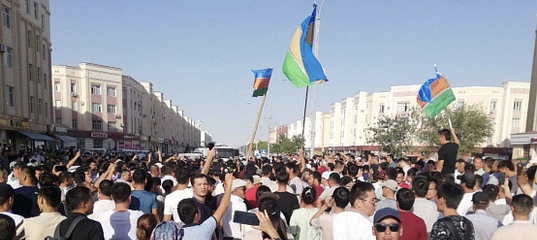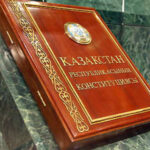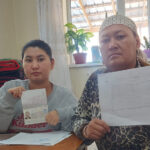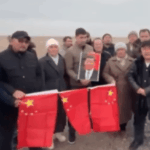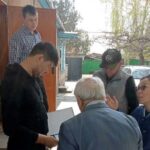Yet another Karakalpak has been detained in Kazakhstan at the request of Uzbek authorities. 43-year-old Rinat Utambetov is the third victim of Uzbekistan’s special services’ crackdown on Karakalpak activists in Kazakhstan.
His arrest was announced by Vitaly Ponomarev, the director of the Central Asian program on the Memorial Human Rights Centre. According to Ponomarev, Utambetov, a resident of Nukus who resided in the Iliysk district of the Almaty region with legal residency in Kazakhstan, became a defendant in a criminal case initiated in Uzbekistan approximately three months ago. This case is related to Utambetov’s video messages addressing the violent suppression of popular demonstrations in Karakalpakstan in July 2022. One of the charges includes violating Article 159 of the Criminal Code of the Republic of Uzbekistan (pertaining to the encroachment on the constitutional order of Uzbekistan). He is presently detained in a pre-trial detention centre and the Kazakhstan International Bureau for Human Rights will participate in his case.
Presently, two Karakalpak activists are being detained by Kazakh authorities; human rights defender Akylbek Muratov is in custody on the extradition requests from Tashkent and Rasul Zhumaniyazov was detained in Astana on the 26th of March. Previously, five Karakalpak activists have been arrested at the request of Uzbekistan and each spent a year in prison before their released. Except for Koshkarbai Toremuratov, who fled Kazakhstan, the remaining four individuals are vulnerable to extradition to Uzbekistan, where they could potentially encounter torture and lengthy imprisonment for their involvement in expressing opinions regarding the events in Nukus.
The Kazakh authorities consistently denied political asylum to persecuted Karakalpaks, asserting that their cases lacked a political dimension.

